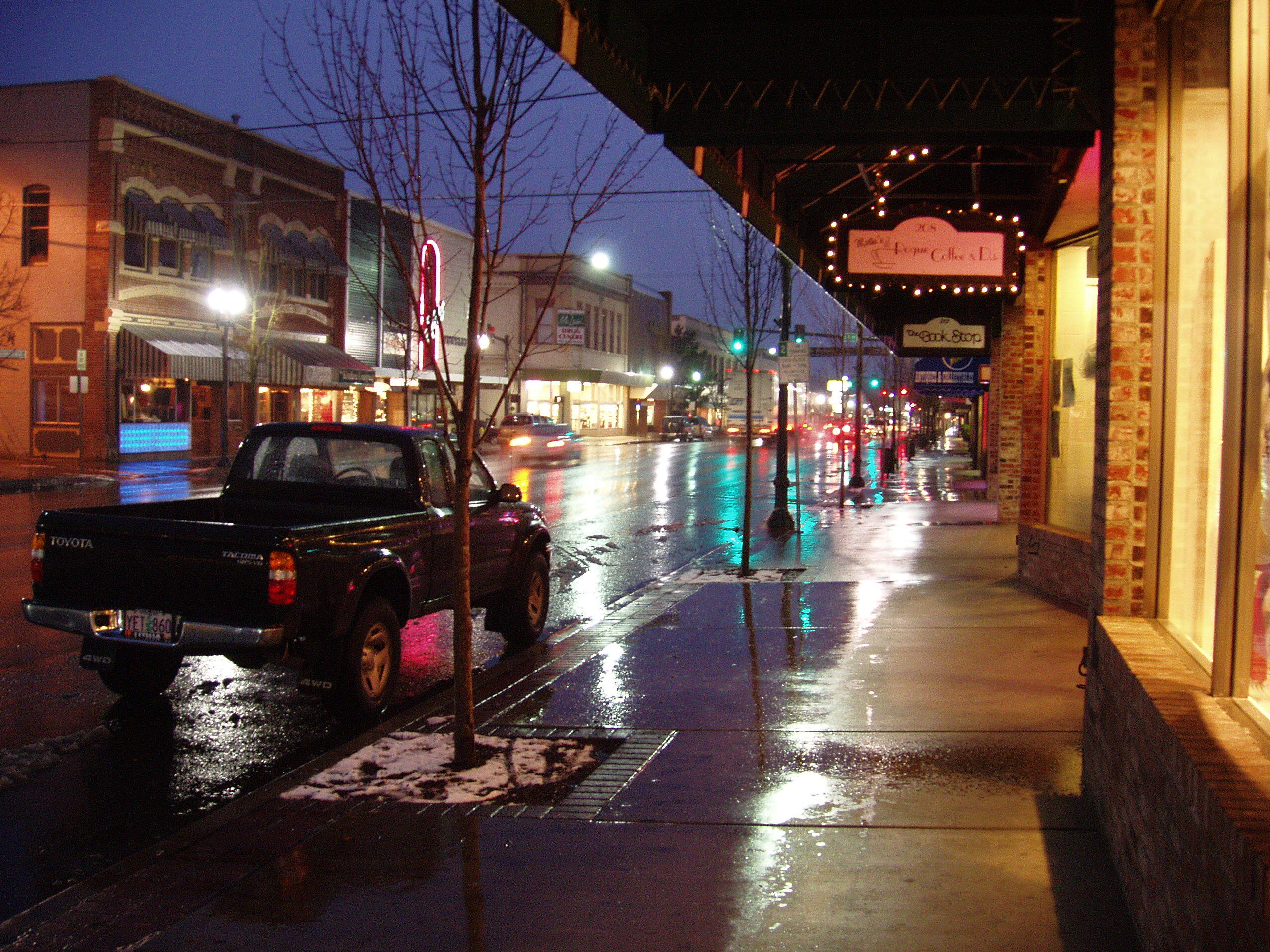Even after living in Oregon, off and on, for 30 years, I still tend to drive through a few towns there without looking right or left. One of these is Grants Pass, which has, as the Oregon Encyclopedia delicately puts it,
a troubled social history, with outbreaks of religious intolerance and white supremacist activity. The Ku Klux Klan was active throughout Oregon in the 1920s, with an estimated Grants Pass membership in the hundreds. The Klan had a short-lived resurgence in Grants Pass in the 1980s and 1990s, and the area was targeted for an Aryan Nations’ organizing drive, canceled after an anti-racism protest in the city drew 1,500 marchers in 1995. Militia activity spilled over into Grants Pass as well, most recently involving demonstrations by the Oath Keepers group.
Whatever its image may be, the city in 2024 bids fair to become the nationwide face of non-hospitality. Today, it will come before the Supreme Court to defend an “anti-camping” law designed (in the words of one of its sponsors) “to make it uncomfortable enough for [homeless people] in our city so they will want to move on down the road.”
If discomfort was their aim, the “anti-camping” ordinances’ authors achieved it. It is currently unlawful in Grants Pass to be anywhere in public with “bedding, sleeping bag, or other material used for bedding.” “Campers” don’t need to erect tents or shelters; merely holding a blanket violates the law. There can be no sleeping in public parks or other public property, and cars cannot be parked for more than two hours in public parks after midnight. No one can sleep in “any pedestrian or vehicular entrance to public or private property abutting a public sidewalk.” Anyone found “camping” or sleeping can be “immediately removed” from the premises and subject to a fine of $75 (for merely sleeping) or $295 (for “camping”). These fines are bolstered by hefty “collection fees” if not paid promptly. Though the fines are “civil,” a homeless person with two unpaid fines may be subject to an “exclusion order”—and may be fined and jailed for violating that order.
Homeless people in Grants Pass might try to find somewhere to shelter legally on a chilly night, but that quest is problematic. The city doesn’t maintain public shelters; it has a “sobering center” where intoxicated people can sober up, a temporary shelter for homeless youths, and a “warming center” that operates only on nights that fall below freezing (and doesn’t feature beds). Meanwhile, a church-supported “Gospel Rescue Mission” allows homeless individuals to stay—if they agree to work six days a week at shelter-assigned jobs, not to seek other employment while staying there, and not to smoke, drink, or engage in “intimate relationships.” Women may stay at the Mission with their children; men may not bring their children with them. Residents must also attend Christian services twice each weekday and once on Sunday.



“Now listen, you rich people, weep and wail because of the misery that is coming on you. Your wealth has rotted, and moths have eaten your clothes. Your gold and silver are corroded. Their corrosion will testify against you and eat your flesh like fire. You have hoarded wealth in the last days. Look! The wages you failed to pay the workers who mowed your fields are crying out against you. The cries of the harvesters have reached the ears of the Lord Almighty. You have lived on earth in luxury and self-indulgence. You have fattened yourselves in the day of slaughter. You have condemned and murdered the innocent one, who was not opposing you.”
https://www.biblegateway.com/passage/?search=James 5%3A1-6&version=NIV